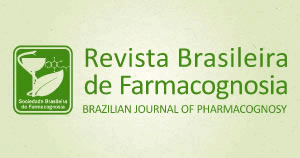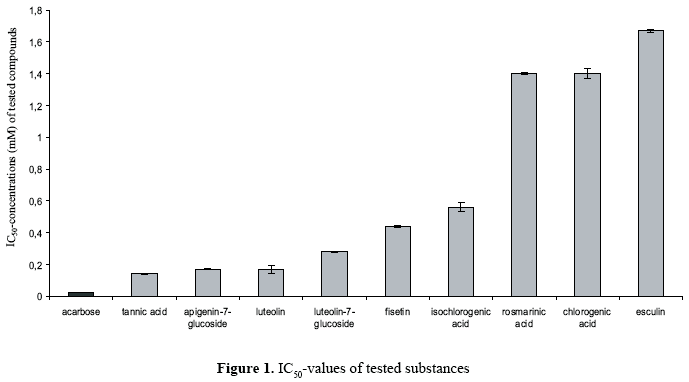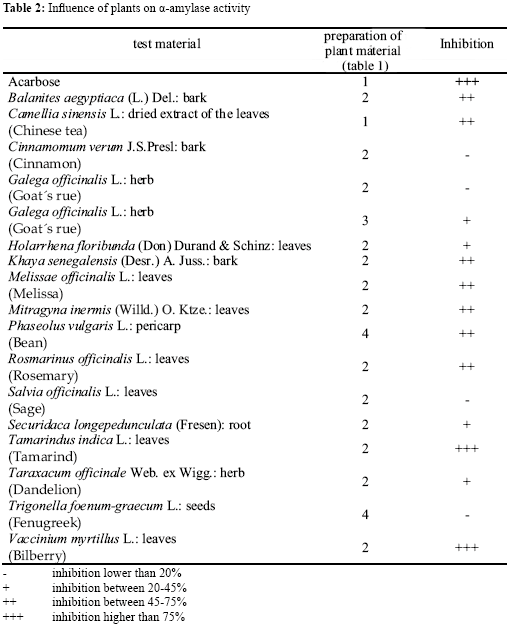Diabetes mellitus is a metabolic disorder characterized by chronic hyperglycaemia. There are many and diverse therapeutic strategies in the management of Type 2 diabetes. The inhibition of alpha-amylase activity is only one possibility to lower postprandial blood glucose levels. In our in-vitro studies we could demonstrate that different plants, mostly traditionally used in common diabetic therapy in Africa or Europe, are able to inhibit alpha-amylase, which is responsible for the breakdown of oligosaccharides into monosaccharides which are absorbed. An inhibition of alpha-amylase activity of 90% was seen with the extract of the leaves of Tamarindus indica. To quantify inhibtion rates, acarbose was used (IC50: 23.2 µM). Highest inhibition level of acarbose in our testmodel was about 85%. Additionally tests with pure polyphenolic compounds might explain the biological activity of the selected plants.
Type 2 Diabetes mellitus; inhibitors of alpha-amylase activity; plants traditionally used in diabetes treatment; polyphenolic compounds



